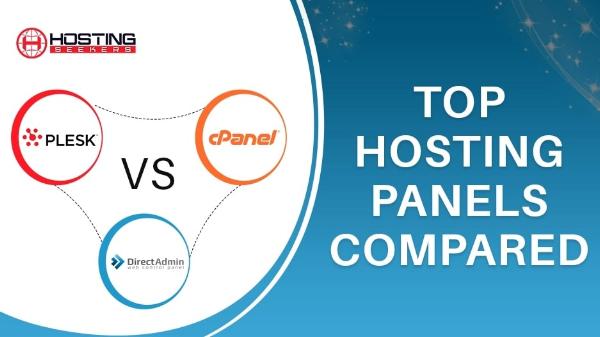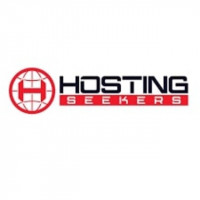Cpanel vs Plesk vs DirectAdmin: A Detailed Comparison

Strong 8k brings an ultra-HD IPTV experience to your living room and your pocket.
When it comes to managing web hosting accounts, Control Panels play a crucial role in simplifying the process for both hosting providers and their clients. These web-based interfaces offer a user-friendly environment for managing various aspects of a hosting account, including domains, email, databases, and applications. In this blog post, we'll delve into the comparison of three of the most popular control panels: cpanel vs plesk vs directadmin. We'll compare their features, ease of use, pricing, and suitability for different hosting environments.
cPanel
cPanel has been a dominant force in the web hosting industry for many years. It's known for its intuitive interface and extensive feature set. Here's a breakdown of its key characteristics:
Features:
User-friendly interface: cPanel's interface is designed to be accessible to users of all levels, with clear navigation and easy-to-understand options.
Comprehensive feature set: cPanel offers a wide range of features, including domain management, email, FTP, databases (MySQL and PostgreSQL), and application installation (Softaculous).
Security: cPanel incorporates various security measures, such as WHM (WebHost Manager) for server-level management, security hardening options, and integration with security scanners.
Customization: cPanel can be customized to meet the specific needs of hosting providers, with options for branding and theme changes.
Ease of Use:
cPanel's user-friendly interface makes it a popular choice for both hosting providers and their clients. The clear navigation and intuitive design allow users to easily manage their hosting accounts.
Pricing:
cPanel is a licensed product, and hosting providers typically pay a recurring fee to use it. The pricing can vary depending on the number of accounts, features, and additional modules.
Suitability:
cPanel is well-suited for a wide range of hosting environments, including shared hosting, VPS, and dedicated servers. Its comprehensive feature set and user-friendly interface make it a popular choice for hosting providers of all sizes.
Plesk
Plesk is another popular control panel that offers a robust feature set and a focus on ease of use. Here's a breakdown of its key characteristics:
Features:
Intuitive interface: Plesk has a modern and user-friendly interface that is designed to be easy to navigate.
Comprehensive feature set: Plesk offers a similar range of features to cPanel, including domain management, email, FTP, databases, and application installation.
Security: Plesk includes various security features, such as built-in firewall rules, malware scanning, and integration with security providers.
Automation: Plesk offers automation features, such as automated backups, updates, and provisioning of new accounts.
Ease of Use:
Plesk's interface is designed to be intuitive and easy to use, making it a good choice for both technical and non-technical users.
Pricing:
Similar to cPanel, Plesk is a licensed product with a recurring fee. The pricing can vary depending on the number of accounts, features, and additional modules.
Suitability:
Plesk is well-suited for a wide range of hosting environments, including shared hosting, VPS, and dedicated servers. Its focus on ease of use and automation makes it a good choice for hosting providers looking to streamline their operations.
DirectAdmin
DirectAdmin is a lightweight and feature-rich control panel that is known for its performance and stability. Here's a breakdown of its key characteristics:
Features:
Lightweight and fast: DirectAdmin is designed to be lightweight and perform well on various hardware configurations.
Comprehensive feature set: DirectAdmin offers a similar range of features to cPanel and Plesk, including domain management, email, FTP, databases, and application installation.
Security: DirectAdmin includes various security features, such as built-in firewall rules, malware scanning, and integration with security providers.
Customization: DirectAdmin can be customized to meet the specific needs of hosting providers, with options for branding and theme changes.
Ease of Use:
DirectAdmin's interface is less intuitive than cPanel and Plesk, but it is still relatively easy to use once you become familiar with it.
Pricing:
DirectAdmin is a licensed product with a recurring fee. The pricing can vary depending on the number of accounts and features.
Suitability:
DirectAdmin is well-suited for hosting providers who prioritize performance and stability. Its lightweight design makes it a good choice for servers with limited resources. Are you considering hosting an Ark server but unsure about the difference between dedicated and non-dedicated options? This comprehensive guide ark difference between dedicated and non dedicated, helping you make an informed decision.
Conclusion
Choosing the right control panel for your web hosting business depends on various factors, including your specific needs, budget, and technical expertise. cPanel, Plesk, and DirectAdmin each offer unique advantages and disadvantages. cPanel is known for its user-friendly interface and extensive feature set, Plesk is focused on ease of use and automation, while DirectAdmin is known for its performance and stability. By carefully considering your requirements and evaluating these control panels, you can make an informed decision that best suits your hosting business.
Note: IndiBlogHub features both user-submitted and editorial content. We do not verify third-party contributions. Read our Disclaimer and Privacy Policyfor details.


